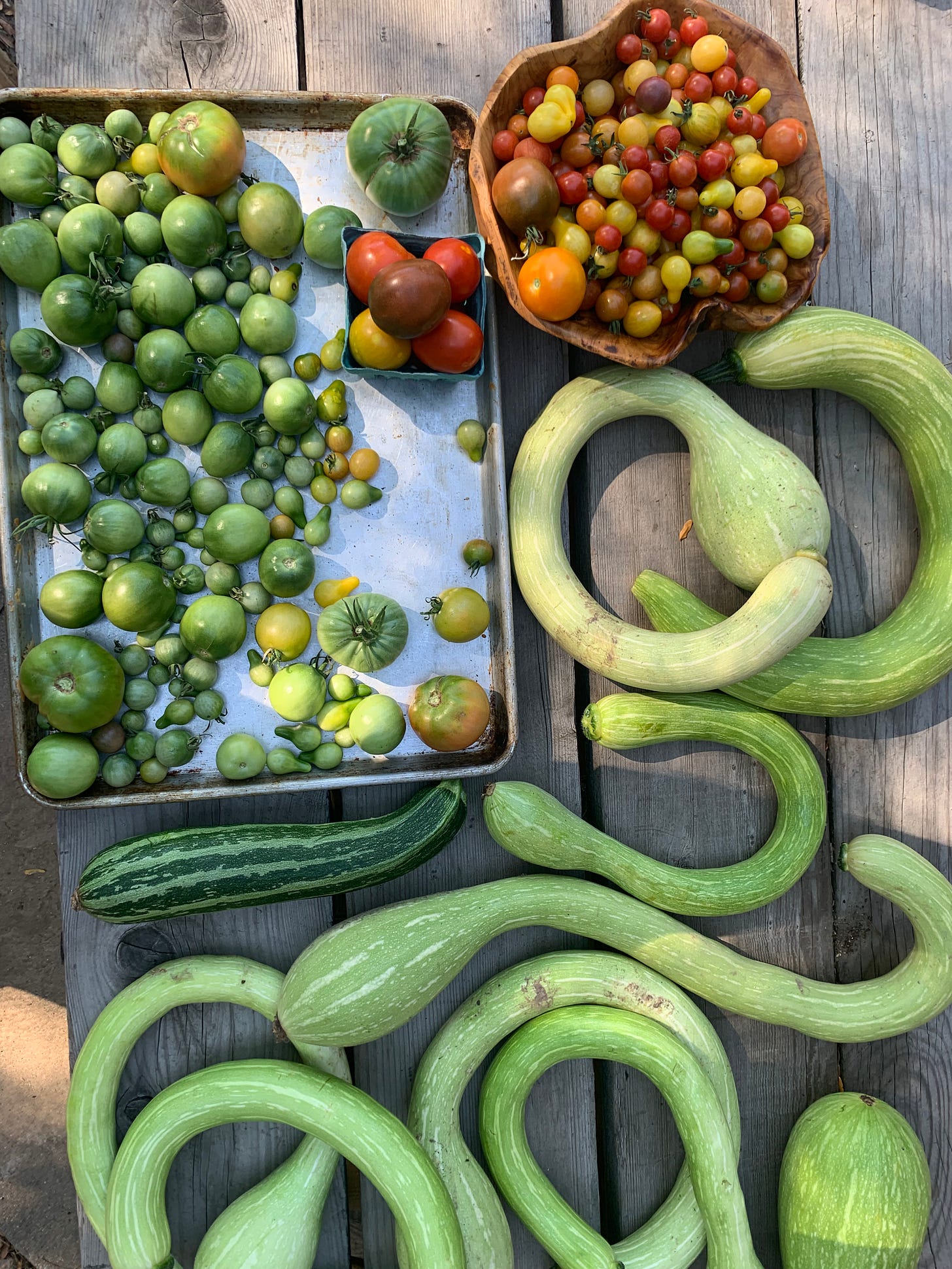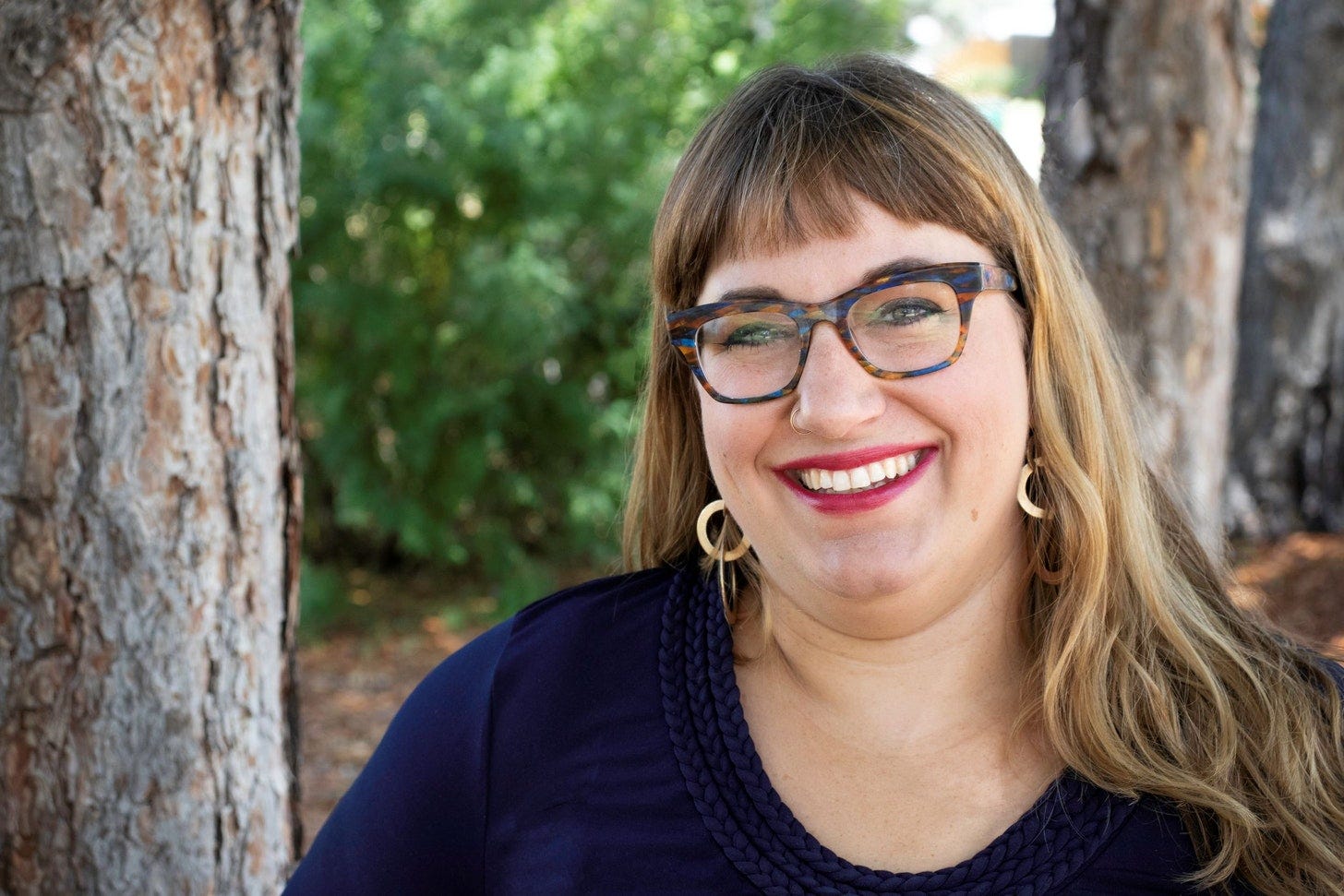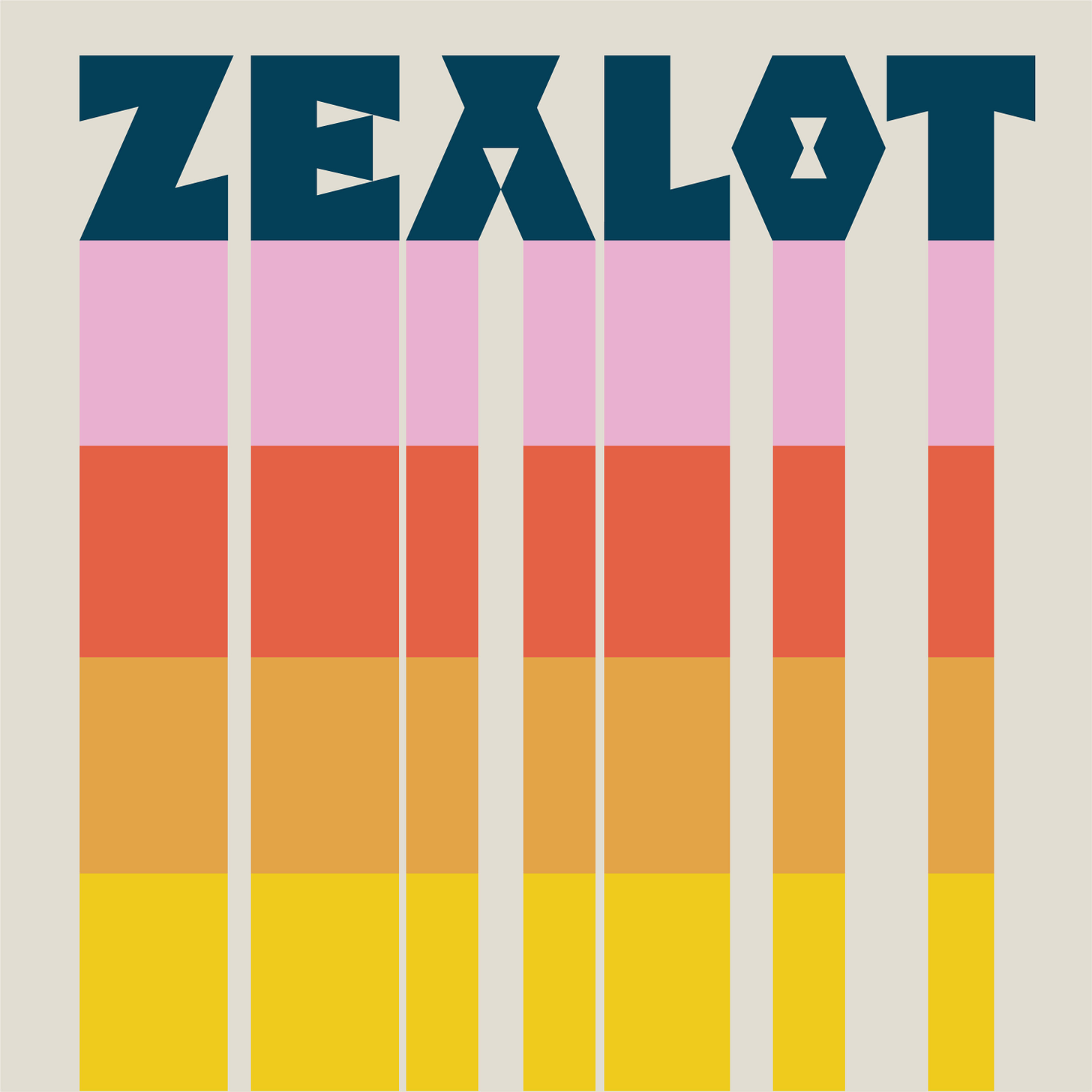the Empathy List #88: Thirsty
What the Desert Can Teach Us About Lack
If you enjoy my emails, would you forward this one to a friend?
Hello friend, Liz here.
Since school has started here in the US, you might not realize that it’s still summertime. But actually, being a vegetable gardener has made me sensitive to the weather systems in a way I never was before. While this is, technically, harvest time, I’m finding myself thinking of deserts today.
Right now, my region is experiencing an unseasonable heat wave.
In fact, because my kids’ public elementary school doesn’t have air conditioning (due to redlining and other inequities built into Denver’s school system over decades… don’t get me started…), they’ll be sent home early to keep them cool. Literally, they’ll be released at 1PM instead of 4PM two days this week to avoid heat stroke. Donated mobile AC units just won’t cut it.
Colorado is basically the surface of the moon as far as rainfall is concerned. That’s our normal—and then when you add any climate abnormalities to that, well, I might not be able to grow veggies in seasons to come.

Jesus’s tribe would have been deeply familiar with desert landscapes.
Have you ever noticed how many Biblical passages concern “streams of water in the desert” and “flowers in the wilderness”?
Seriously, go look up how many times “desert” occurs in the Bible (not to mention “wilderness,” “thirst,” or “famine,” which was most often caused by drought in the Ancient Near East and later in the story, too). Entire ancient civilizations toppled due to dehydration in the so-called “fertile crescent” of Israel and the surrounding mid-east regions.
Judea was wilderness. The whole damn place was sand and sandstone and shells, no fluffy, black loam for miles. (Loam, by the way, is that fertile soil which every gardener lusts after… because it is so teeming with life that things cannot HELP but grow when transplanted there.) Even the rivers that snaked through the Hebrew landscape were seasonal at best. Groundwater, too, was unreliable—it could be murky with harmful bacteria or tainted by nearby salt sources.
I could go on and on about the thirsty settings of the Bible because I feel an affinity for these dry places as a moody Enneagram 4. ;-)
However, in particular, I want to draw your attention to the Edenic promise in Isaiah 35:
“The desert and the parched land will be glad;
the wilderness will rejoice and blossom.
Like the crocus, it will burst into bloom…
Strengthen the feeble hands,
steady the knees that give way;
say to those with fearful hearts,
“…your God will come,”
“Water will gush forth in the wilderness
and streams in the desert.
The burning sand will become a pool,
the thirsty ground bubbling springs.”
I love this passage because it is absolutely absurd. Deserts don’t just disappear. Deserts are more likely to appear, in fact, which is what we’re seeing across the globe today.
If Isaiah had stood on a sidewalk corner today, preaching this exact message in the face of our current climate crisis, he’d be disbelieved with equal fervor as he was in his own time.
I mean, of course he was disbelieved—because the prophet here is describing a miracle that cannot be brought about within the natural order except if the supernatural steps in.
Another tale of comfort that I offer from the hellscape of the desert is that of the desert fathers and mothers.
As a reminder: the desert fathers and mothers are those third-century believers who resisted Constantine’s move to hitch the Christian church to politics. These fools did that by moving into the Egyptian desert. Partly, that move was one of protest; but mostly, they felt compelled to follow God another way. Because to them, pain meant revelation.
And they weren’t messing around about the pain part. St. Anthony, the first of the desert fathers, set up in tombs, often sharing floor space with mummies. He adhered to a strict code of silence although he could occasionally be heard screaming at the tormenting spirits who appeared to him as busty women (yes, really).
St. Anthony rarely ate. A few times a week, a local might stop by his cave to throw in a loaf of bread that would sustain him for the next few days. He also limited his sleep and his intake of water. He barely even allowed himself the luxury of salt, and so you can be certain that no other flavor would have adorned his brief meals. Eventually, his extreme example attracted followers to his way, and others moved into the desert, too, hungry for an alternative way of following Christ.
But what strikes me now as I consider desert places is how often the accounts of these early christians include detailed considerations of water and hydration. Entire pages record the fathers’ discussions with each other about water sources. They weigh whether a visit to a nearby monk could be undertaken or whether the scorching heat sustained through their journey will instead finish them off.
I bring this up because we live now in a culture rich in resources of all kinds, including water.
Sometimes we believe that our wealth is normal and unremarkable. In reality, it’s miraculous.
For example, though I live in an arid, high-desert climate, I have the ability to drink as much as I want and splash extra water on my vegetable rows. I can bathe my children, I can clean my clothes, I could even fill a swimming pool if I so desired. I can plant acres of grass and expend the water to keep it green. (Though I don’t. I’ll write a whole other newsletter about my grass woes and resolutions eventually— because living in the desert, I’ve thought about this one and adjusted. But that’s for another time.)
It’s hard to imagine desperate thirst when water is only a few steps and a turn of the tap away. I wonder what the desert wanderers’ lack—including the lack of the ancient Hebrews—can teach us Christians today, we who find lack so repulsive.
Actually, I think the heightened danger of those desert places reveals something that is true of all people at all times, something still true of you and me: us humans are needy.
What Isaiah and the desert fathers and mothers remind me is that in all cases, God is the only one capable of filling our lack. God, the all-powerful, God, the ruler over the dry ground and the tropics alike, God comes through. God is the creator and the sustainer and the rescue party.
Do we actually believe God has that kind of power? Is it impossible for me to believe that God controls the weather, traffic patterns, the health of my children, the intricacies of my work and love life, the impossibilities of climate change and the next election cycle?
Do we believe that we need God?
Do we even want to need God?
Has our modernism cured our deepest need away and apart from God or is there something that we still lack? (Might we need to sell all our possessions to discover it?)
What I’m saying is, we often don’t remember our frailty when we’re rich. So is it possible that we are missing the face of God amid our extreme competence?
Isaiah and the other desert followers seem to point that direction. To them, the way to God, always, was the singular desert path. To see God, they protest, we may need to get poor. I can hear the voice of Isaiah to us, still: your lack may be the only way to revelation.
Warmly, Liz Charlotte Grant
AHHHHH! THE TRAILER IS HERE!!
(You can also listen by clicking the Podcast Tab up thatta way ☝🏻)
My newest creative effort is the Zealot podcast. In its first season, I’ll be telling the story of how I heard God’s voice about my future husband… the second time we met. (SO AWKWARD.)
I do NOT yet have a release date set for season 1, but it’s in the works, so I wanted to share the trailer. Would you consider following along, rating it, and/or sending it to a friend? 🙈 TANKS.
Curious Reads
#1
BIG NEWS: there’s a new Girl Scout cookie on the menu. A critic weighs in on whether “Raspberry Rally” is any good.—The Washington Post
#2
What if you tried to swallow a whole cloud? Are all the churches in the world big enough to hold all the bananas? What’s the tensile strength of snow? How much actual dinosaur does a toy dinosaur contain? If you drove a car to the edge of the universe, how much gas would you use?
Ask an absurd question and xkcd’s Randall Munroe will give you a (somewhat) serious answer. In other words, my kids will love this book.—Wired Magazine
#3
Ramsey Solutions has a sex problem. Apparently, there’s a moral standard of “no sex outside of marriage” that does not seem extend to higher up leadership, according to a recent release of internal documents.—Religion News Service
#4
Alexandria Ocasio Cortez speaks out: “In this moment it’s really only going to be the vulnerability of men, and men talking to other men, that gives us the greatest hope of shifting things the fastest, soonest.”—GQ
#5
All parents sing to their babies, and here’s why it matters. (Turns out, singing connects us to each other.) —The Atlantic
My feelings exactly…
Thank you, Rowan Atkins, for reading my mind.
(From the ancient BBC program, “Not the Nine O’Clock News.”)










What a beautiful reflection! I was just listening this week to the Bible Project's breakdown of various events in Exodus, including when Israel had gone THREE DAYS without water. They were talking about how long either of them had gone without water, and how quick we are to judge the Israelites for their seeming lack of faith. But deserts and thirst are BRUTAL!